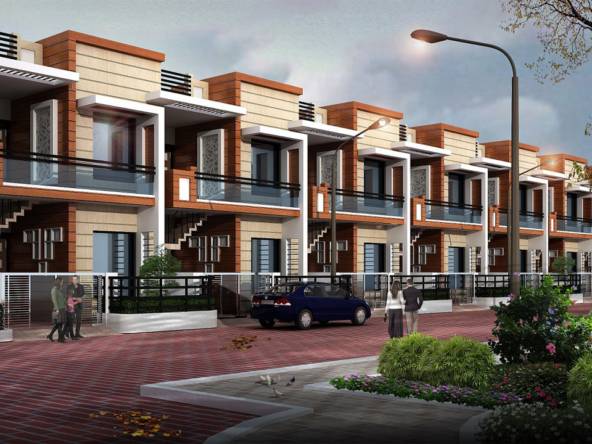India’s path to becoming an infrastructural giant was riddled with an ongoing tussle between landowners and authorities. The enactment of the Right to Fair Compensation and Transparency in Land Acquisition, Rehabilitation and Resettlement Act, 2013 (RFCTLARR, 2013) called the land Acquisition Act from now on in 2013 brought some relief.
Although, disputes related to irregular, insufficient compensation and alleged forced acquisition, compelled the States to find an alternative and the Land Pooling Act emerged as a favorite choice. As land acquisition and requisitioning of land comes under the concurrent list, a number of States have notified their respective Land Pooling Acts.
Panchkula Land Pooling Policy

Land pooling is an activity where a group of landowners hands over their land parcels to the government collectively for infrastructure development. Once the development is finished, the land is handed over to the original owners, after deducting some portion as the cost goes the same.
The primary benefit of the land pooling policy is that the ownership remains with the original titleholder and it reduces the chances of legal disputes and compensation disbursements. Although, the land pooling policy needs a definite percentage of landowners to give consent for the procedure. Discontent among a definite section of landowners is a common challenge in this activity.
The Municipal Corporation, Panchkula is aiming at establishing new sectors via a land pooling policy. Panchkula, Haryana has come out with a land pooling policy for 2022, as a part of its making the land banks available for the purposes of major industrialization and urbanization. Panchkula says that as per the land pooling policy 2022, the land owners shall be partners in the development process and the policy aims at providing the most profit to land owners by linking the allotment of land with the price of raw land.
The land pooling policy is a timeline to be followed at different stages so t the interests of landowners are protected and the objective of land development is achieved. This land pooling policy aims to achieve planned development through the voluntary participation of landowners interested to become partners in the development process to follow provisions of the Haryana Schedules Roads and Controlled Areas Restriction of Unregulated Development Act, 1963.
While the state government is terming it a landmark and attractive policy in the interest of land owners and farmers. The objective of the land pooling policy is to achieve the purpose of planned development including the development of infrastructure and for the purpose obtain land through the voluntary participation of landowners or farmers, interested to become partners in the development.
The registered property dealers or real estate agents have been designated as aggregators under the policy and the development organization has been described as state government in any department or any board, corporation, statutory authority or any other organization owned and controlled by the state government intending to obtain land for a development purpose.
After getting approval for the land pooling policy from the state government, decks have been cleared to develop Panchkula on its basis. A farmer will get 1000 square yard residential and 200 square yard commercial plots in exchange for his land given for the development o urban areas, according to the land pooling policy, The local administration has been eager to develop urban areas in Kalka and Pinjor with housing and commercial projects. Huda as well as the municipal corporation would benefit from the scheme.
This is the primary time that Panchkula Municipal corporation plans to line up new 24 residential sectors within the district with land pooling schemes on the lines of Punjab and Gujarat. The civic body would use the program of the Urban Complex planned in Kot and Billa Villages in 2013 to line up 24 residential sectors.
The Municipal Corporation can utilize the land pooling scheme almost like Greater Mohali Areas Development Authority (GMADA) to create the sectors. Local villagers will be requested to pool and for the growth of new sectors and an agreement will be signed with them for the growth of the area.
The Municipal Corporation sets up to hire consultants to ensure the success of the plan. A number of villagers are interested in expanding their area under the land pooling scheme, under which the landowner will be given one thousand to 1200 square yard plots inside the sector and the Municipal Corporation will not have to pay any amount to the landowner. There will be no enhancement such as issues that will come in the future. The proposal would be shared with councilors. The offer will be given to ULB for approval.
Benefits of land pooling policy
The infrastructure development in our country has always been a two-edged sword. Whereas the event may be a necessity, the eviction of landowners from their ancestral properties and also the lack of rehabilitation avenues result in opposition from completely different quarters. Land acquisition as a policy has failed on a number of fronts and therefore, land pooling has emerged as a win-win alternative to it. In countries as vast, developing and socio-economically complex as India, matters of land ownership and acquisition are often fraught with friction and challenges.
Problems like documentation, complicated administrative and legal procedures, holdout issues and rampant use of black money in transactions have plagued land transactions for decades now. Add to it the fundamental inequality in our society and the corresponding skewed access, control and ownership of land and what we get is a resource in dire requirement of structural and management reforms.
While the list of reforms required is long, one solution is gaining prominence and attention and that is land pooling, Under the land pooling policy, a few landowners come together, pool their land and hand it over to a real estate developer or an administrative body quickly for the event of personal or public infrastructure comes.
After these projects are developed, the ownership of the land is restored to the original landowners after the developer or agency deducts some portion of their fees or remuneration. Currently, this process is being practiced in the states of Maharashtra, New Delhi, Gujarat, Andhra Pradesh and Haryana.
There is a number of advantages that land pooling has over land acquisition. It gives a nice chance for planned growth and development of the land and the infrastructure linkage and it also gives away the problems of land and densities. There is a number of land developer in the Asian nation who generally have problems as splits in teh urban area are small inside, shaped irregularly and do not offer easy access to the main roads.
However, most of these plots are not for same and it is really tough to find out enough plants that are in proximity to each other and hence the development of the building is a little disturbed. The process of land readjustment is very catchy and it makes an impact on the place and timing of new urban development as it is very complicated to get support from the public for the usage of expropriation for the development of the land and provision of the perfect infrastructure.
Some of them are given below-
A win-win situation for all parties
For too long, land dealing has been considered a competitive, lose-win affair between the two transactional parties. In a country like India, the original landowners are thought-about additional at risk of losses within the commercialism method. This has seeped deep into our fabric and also the resultant hesitation and distrust created the method even additional tedious. With land pooling, landowners are assured that throughout the land development method, their possession is maintained safely and by paying a relatively smaller fee, they are obtaining developed and therefore the upper price of land reciprocally.
Ease of doing business
Businesses as well as landowners stand to gain out of land pooling. For infrastructure development, there is a pointy reduction in the time, effort and different resources required for meeting and convincing every landholder on an individual basis. For landowners, the united effort reduces the danger of being on an individual basis exploited by the developer. With bigger transparency and potency on each side, there is a rise in mutual trust and understanding, that interprets into higher skills to form and enforce contracts between the two sides. Such trust is important for simplifying business and industrial procedures and leading to bigger easy doing business. With land pooling, there is an awfully real likelihood that easy doing business can increase significantly in development and construction.
Driving a developing economy
The land is a very important and basic factor of production that can directly impact the growth and robustness of an economic system. India’s vast territory and predominantly agrarian setup only enhance the role of land in driving economic process and prosperity. As the economy experiences sectoral shifts from agriculture to industry and services- land matters become even more pronounced and crucial, reforms. A practice like land pooling can go a long way in guiding a number of these reforms, otherwise considered in silos, in a joint manner. It infuses transparency and efficiency in land dealing which establishes trust and cooperation between the transacting parties, greatly reducing time and cost overruns in procedural, legal tasks and administrative. The net also has a quantitative increase within the variety of land transactions and ensuant revenue generation. It conjointly makes positive higher equitability within the distribution of advantages and might play a key role in reducing chronic category differences in our society. With bound policy reforms, land pooling can even be controlled to safeguard the rights of the landless category also.
Greater control in the hands of landowners
When landowners pool their land along and hand it over to a non-public developer, they not solely retain the possession of their land but conjointly gain bigger management over the look and construction of the infrastructure on that. As additional and additional voters become environmentally and ethically aware, practices like land pooling have considerably augmented the possibilities of adopting property and ethically viable practices into infrastructural development on their land. In the medium and long term, an amalgamation of this infusion promises to benefit the complete land development ecosystem of the country.












